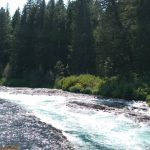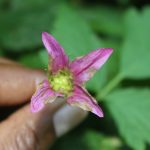Managing Rivers in Deserts/ Dry Areas: Whychus Creek
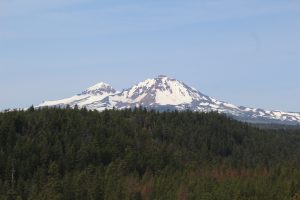
Whychus Creek is one of the numerous tributaries of the Deschutes River. It is fed by rain and snow melt from the Sisters Mountain. It flows from high in the Cascade Mountains through the City of Sisters on its way to the Deschutes River. For almost 100 years, twenty miles of Whychus Creek ran dry during the summer irrigation season. During the dry season Whychus fish populations decreased to low levels.
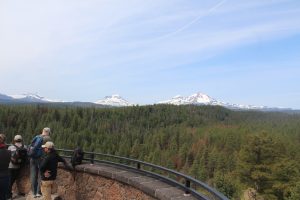
Collaboration amongst stakeholders such as Deschutes River Conservancy, the Deschutes Basin Land Trust, The Upper Deschutes Watershed Council, and many other stakeholders, has seen the river being restored.
Their collaborative efforts have:
- Restored river bank habitat
- protected streamflow in Whychus Creek
- restored salmon’s population
- reduced the effects of floods by creating flood plains
- Farmers now have a perennial river.
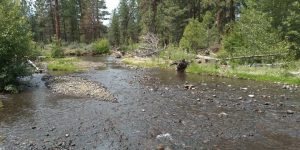
Work done:
- Negotiating with private dam owners to decommission their dams to allow free water flow and provide them with alternatives. Dams used to block fish passages.
- Decommissioning numerous roads to increase infiltration rates and reduce erosion.
- Decommissioning of bridges as they channel high volumes of water and rather create multiple channels in the river to divert water thereby slowing down river velocity.
- Planting trees and other forest specimens to stop erosion and to cool the watershed. Warm river temperatures impacts negatively on aquatic life with gills.
- Flood plains helped in raising the water table to support vegetation growth around the river channel and to feed water into the underground aquifers.
LESSONS LEARNT: The difference between a forest and a desert is not rain but people.
Region 4 and 5 in Zimbabwe: we need to learn from this exercise. We can do more to stop our streams being clogged with sediments and waste material. Stream bank cultivation and vegetation disturbances are the major contributors to river erosion. Sedimentation fills up our rivers , reducing their ability to hold water and rejuvenate vegetation around them….
SAVING WATER SAVE LIVES…



